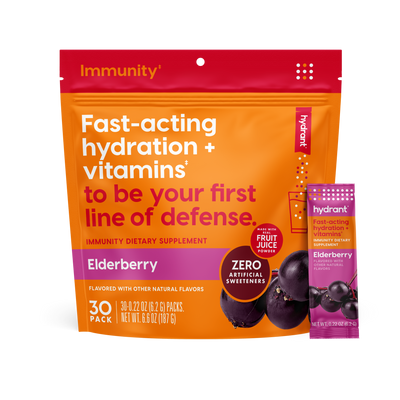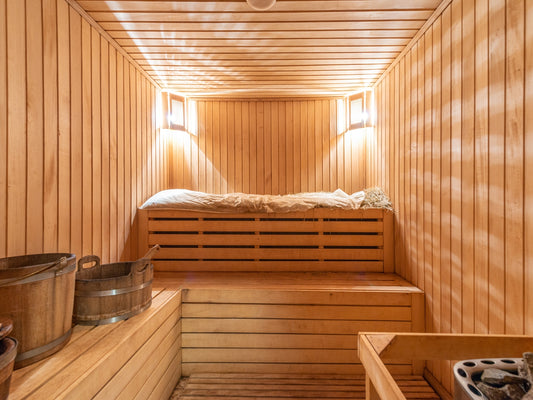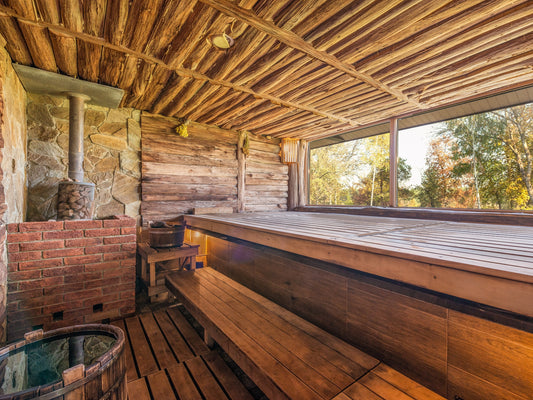Why is my skin so dry in the winter?
Cozying up behind the fireplace, wearing fuzzy socks and ugly sweaters, drinking hot chocolate with extra whipped cream... Winter is here! Everything is perfect, except for our dry winter skin.

Before we resort to slathering our skin in lotion the texture of egg-nog, let’s backup to understand why our skin gets so dry in the winter. Let’s start simple: what is skin?
Skin is a complex and multifunctional organ that’s always looking out for you (thanks, skin!). It keeps harmful bacteria out, synthesises essential vitamin D, and prevents excessive water loss. Skin is made up of multiple layers: the outermost layer of the skin is called the epidermis and the outermost layer of the epidermis is called the stratum corneum. The amount of water in the outermost layer, or perhaps lack thereof, is what distinguishes normal skin from dry skin [1].
Normal skin works hard to stay well hydrated
The stratum corneum functions to form a protective barrier for your skin, working to keep moisture and electrolytes from escaping. How? This outer layer is formed by an interlocking network of cells called corneocytes. These cells are embedded into matrix of lipids (fat molecules) and protective proteins. Together, these components form a water-repelling “cement" between the interlocked cells, which prevents the escape of water from the immediate proximity of skin cells, and out of your body. The corneocyte cells also have moisturizing factors which are small, water soluble molecules that allow the absorption of a small amount of water into the cells, hydrating them [2].
Why is my skin dry?

We’ve just seen how the the skin keeps well hydrated. But when the barrier function of the stratum corneum is compromised (e.g. by washing away lipids) or if the amount of water in the air decreases (e.g. air from an air-conditioning unit) then too much water leaves the stratum corneum. This leads to dry skin.
The top layer of cells in the skin is constantly being shed. Usually, this healthy process goes unnoticed as a newer, healthier layer of hydrated skin takes its place. However, when skin becomes dry the stratum corneum sheds abnormally as clumps, which we recognize as dry skin [2].
If water levels drop in the stratum corneum this layer shrinks in volume and surface area, tightening against the skin below until it cracks, producing a flaky appearance. When the stratum corneum’s protective barrier is compromised it is less able to keep water inside your skin. With water lost to the environment, your skin will dry out [1].
Many external factors can affect the skin’s natural barrier functions, resulting in increased moisture loss through the skin. Frequent washing, harsh detergents, and long hot baths/showers can remove the lipids that make up the cement of the stratum corneum. To add to this, excessive water contact may also leach away the water-soluble moisturizing factors. This is why, counterintuitively, being in water can make your skin drier.
We also often experience dry skin in winter, when changes in air temperature (including indoor heating!) cause a relatively low humidity environment for our skin. In these conditions, more water is able to leave your skin into the dry heated air [3].
Does the amount you drink affect your skin moisture?

The moisture in the stratum corneum that keeps our skin hydrated is supplied from inside our bodies. The amount we drink determines how much water there is in our blood vessels and thus how much can be absorbed into the stratum corneum. Thus, it makes sense that staying hydrated would also keep our skin hydrated.
However, research on the topic is fairly sparse. One study looks into the effect of long-term water intake on the skin had mixed results. Analysis of participants whose water intake had been increased during the study showed that this group had increased skin thickness. However, this study was mainly measuring the differences between drinking tap water versus mineral water, and does not directly address how an amount (or type) of water effects skin health [4]. We can’t assume “thick” skin necessarily means well-hydrated skin.
More specific studies need to be done to give a clear answer as whether or not drinking more water directly improves skin hydration. However, given the numerous other benefits of staying hydrated, it probably wouldn’t hurt your skin to drink more water.
Hydrate for Healthy Skin
While the science is still out on whether or not staying well-hydrated keeps your skin well-hydrated, drinking an extra glass or two of water couldn’t hurt. Next time you reach for lotion, reach for a glass of Hydrant as well.
Writer: Josie Elliott
Editor: Elizabeth Trelstad, www.hellobeaker.com

















